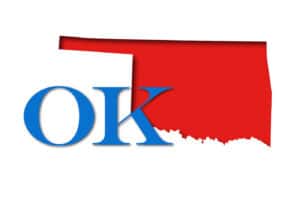Ben Metcalf, Deputy Assistant Secretary for Multifamily Housing Programs recently announced the establishment of the Program Administration Office, which has developed a set of 25 policy priorities for calendar year 2014. These priorities fall in five broad and overarching categories and can be found below.
Producing and preserving affordable housing for those most in need and in locations where it’s most needed.
- LIHTC Pilot for 223(f) loans: Policy adjustments to provide more flexibility to facilitate use of the Pilot by properties with LIHTCs
- LIHTC Pilot Extension to 221(d)(4) loans: Expand availability of the Pilot timelines and underwriting standards to LIHTC transactions that want to access FHA insurance but don’t qualify for 223(f)
- Inclusionary requirements: Review the implications of Thompson vs. HUD with respect to implementing Multifamily Housing programs, specifically how the Baltimore County demonstration program, which encouraged owners to make properties available to low-income persons ,can be replicated in other communities
- Small Multifamily Building Risk-Share: Facilitate the development of small multifamily properties (5 to 49 units, and/or with loan balances under $3 million) by implementing the initiative.
- RAD: Lift the RAD cap from 60,000 units of public housing and Section 8 Mod Rehab, and extend the demonstration timeframe for Rent Supplement and RAP.
Preserving existing affordable housing by improving risk management practices and expanding or enhancing preservation programs.
- Section 8bb Notice: This Notice will set forth the Department’s policies and procedures for transferring all or a portion of any remaining budget authority of a project-based Section 8 Housing Assistance Payments (HAP) Contract to one or more contracts where the existing HAP contract is terminated by mutual agreement.
- Flex Portfolio Pilot (Aggregated Asset Management) Notice: This Notice will announce our intent to conduct a pilot program that would provide high-performing owners and sponsors of certain multifamily properties with the opportunity to exercise greater flexibility in the management of their properties and to receive reduced compliance requirements if they agree to merge affordable properties into portfolios that will be managed as one unit.
- Issue the Handbook 4350.4: Revise the Mortgage servicer handbook to reflect current policies and procedures, and include new counterparty oversight and monitoring guidelines.
- Expand Delegation of Reserve for Replacement Release and Transfer of Physical Asset Approval to Lenders: A Mortgagee Letter and Housing Notice will allow certain lenders to voluntarily assume responsibility for approving releases from the Reserve or Replacement accounts.
- Establish Chief Underwriter Review for Lender Approval Process: Require qualifying lenders to establish a Chief Underwriter, who would have responsibility for administering the staff underwriter approval process in accordance with HUD guidelines, in lieu of qualifying all underwriters employed by a given lender.
- Revamp 2530/APPS: Transform APPS for the21st century and make the 2530 process and APPS work for HUD and the industry, to insure we are doing business with the best partners in the least burdensome way. This is a longer term item with a 2015 completion course.
- Issue the 4350.1 Handbook: Provide clear and current guidelines to industry partners and field staff to improve risk management practices, enhance portfolio oversight and ensure the availability of high quality assisted and insured housing opportunities.
- Establish Owner Counterparty Ratings: A rating system will be developed to rate borrowers and assisted housing owners to ensure we continue to do business with the best partners possible. Rating the borrowers will also facilitate risk mitigation by preventing continued business with “bad borrowers”. This is a longer term item with a 2015 completion course.
- Heighten Enforcement on Failing Assets: Implement enforcement requirements imposed by Section 230 of the 2014 appropriations bill for all properties receiving REAC scores below 30 and certain properties receiving scores below 60.
Strategically controlling program costs by taking innovative approaches to managing the portfolio
- Energy Reduction through Better Building Challenge (BBC): Participants in the BBC will receive guidance regarding shared savings models for Section 202 and 811 Project Rental Assistance Contract properties and Section 8 Project Based Rental Assistance properties; allowing energy efficiency measures as part of the management fee; expedited approval for energy efficiency measures and pulling from the R4R; inviting on-bill repayment waivers; and allowing the IPF for M2M Waiver deals using the GCNA.
- Energy Reduction through Information: The CAN E-Tool is a standardized and automated solution for preparing Capital Needs Assessments that includes a utility conservation component capable of cost/benefit analyses of conservation measures at individual properties. Upon availability, this will replace the tool currently required for RAD and Mark to Market transactions; in time, all capital needs assessments required by HUD and USDA programs would use the CNA E-Tool and use of the tool will be available to other agencies. Projected energy savings will be evenly shared between owners and HUD.
- Energy Reduction through Benchmarking: Issue guidance that will facilitate owners’ ability to benchmark their portfolios
- Rent Comparability Study (RCS) Changes: Review and analyze the current requirements for owner submissions of RCS’s and determine what changes may be necessary to ensure accuracy in determination of market rent levels.
- Budget-Based and PRAC Rents: Review the current process and requirements for HUD and PBCA review of budget based rent increases and analyze whether the process is sufficient for ensuring accurate rent determinations.
Making the business case for increased investments in our programs to provide the tools we need to get work done:
- 202 Demonstration NOFA: The FY 2014 Omnibus Appropriations bill authorizes sweeping of residual receipts and using other available Section 202 funds to fund demonstration programs testing housing with services model to avoid or delay nursing home services and made changes to Section 202 statute to eliminate capital advance requirements and authorize operating assistance-only grants — Multifamily will utilize these new authorities to issue a 202 Demonstration NOFA.
- IT Business Cases/Budgeting: Provide compelling case to Office of Chief Information Officer (OCIO) as to importance of up to date technology to support the work of the Office of Multifamily.
Continuing to provide quality customer service while transforming the way HUD works to 21st century best practices.
- Multifamily Transformation: Integrating business changes within the Office of Multifamily Housing Transformation with the policy development process will lead to improved policy changes.
- Enhance Service Coordinator Program: Promote an outcomes oriented approach to services coordination for elderly residents, including standardizing the work that service coordinators perform, mandating best practices or facilitating training on best practices.
- Revise Delegations of Authority: Continue efforts to delegate responsibilities and authorities to the Field to maximize field empowerment in support of the Multifamily Transformation.
- Modernize Property Disposition Guidance: Issue updated guidance pertaining to property disposition efforts on determining the disposition method that will bring the highest rate of return to HUD.
Click here to read more.
Tags: Affordable Housing, HUD
HUD Releases Long-Awaited Updated Section 8 Renewal Guide
HUD has released the draft revised Section 8 Renewal Policy Guide, the agency’s comprehensive guidance for renewing expiring Section 8 contracts, for public comment. Changes to text within chapters and sections will be denoted with an asterisk (*) to indicate specific changes in the text; this, however, is not the case for Chapter Two, which has been completely revised. As part of these revisions, HUD is also advising the public that Section 9-23 describes HUD’s proposed revision to address when rents in a Rent Comparability Study (RCS) exceed 110 percent of the median gross rent by zip code.
Those interested in making comments should submit those comments by April 30, 2014 and can send them electronically to Section8RenewalGuide@hud.gov or via mail to the Department of Housing and Urban Development, Attention: Section 8 Renewal Guide, 451 7th Street, SW., Room 6134, Washington, DC 20410″“0500. Comments must specifically identify the section number, page, and paragraph number to which they refer.
http://portal.hud.gov/hudportal/HUD?src=/program_offices/housing/mfh/mfhsec8 Click here to view the draft revised Section 8 Renewal Policy Guidance.



